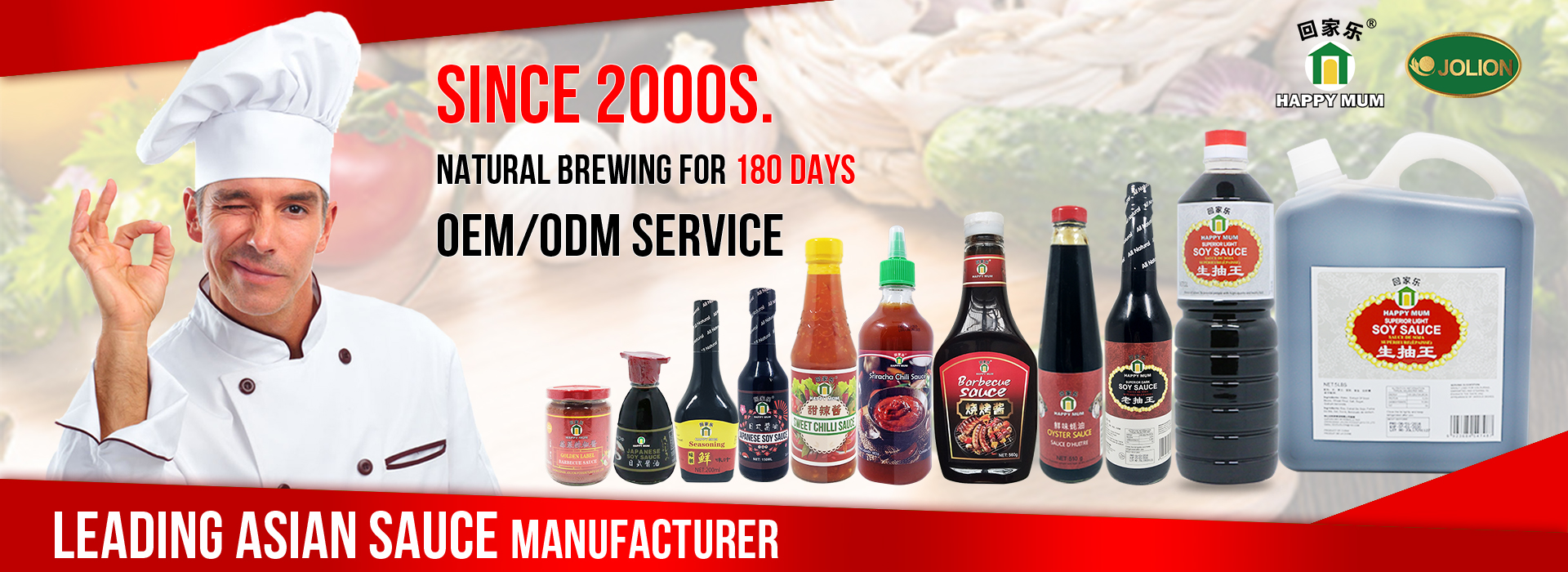
- Exploring JOLION Food's Exquisite Sauces and Noodles at SIAL PARIS 20242024-10-30SIAL PARIS, the renowned international food exhibition, is set to showcase a plethora of gastronomic wonders in 2024. Among the myriad of exhibitors, JOLION Food stands out as a beacon of culinary excellence, promising a delectable journey for food enthusiasts and industry professionals alike.
- Do you really know anything about canned tomatoes?2025-03-31
- The 4,000-Year History of Chinese Noodles?2025-03-27
Understanding Teriyaki vs. Soy Sauce: A Flavorful Comparison
When diving into the world of Asian cuisine, one of the most common questions arises: what is the difference between teriyaki vs. soy sauce? Both are essential condiments that add unique flavors to dishes, but they serve different purposes and taste profiles. This article will explore the distinctions between these two sauces and highlight how JOLION Foods can elevate your culinary creations with their high-quality products.

The Flavor Profiles: Teriyaki vs. Soy Sauce
The primary difference between teriyaki vs. soy sauce lies in their ingredients and flavor profiles. Soy sauce is a fermented condiment made from soybeans, water, salt, and sometimes wheat. It has a rich umami flavor that enhances savory dishes and is commonly used in marinades, stir-fries, and as a dipping sauce. On the other hand, teriyaki sauce is a sweet glaze typically made from soy sauce, sugar, and other ingredients like ginger and garlic. This sauce is popular for marinating meats and glazing grilled dishes, giving a sweet and savory taste.
JOLION Foods offers an excellent selection of both sauces, ensuring that you can find the perfect flavor to match your cooking needs. Their products are made from first-class quality soybeans, selected without GMO treatment, and are naturally fermented under the sunshine for six months, enhancing the depth of flavor.
Culinary Uses: Teriyaki vs. Soy Sauce
When considering teriyaki vs. soy sauce, it’s essential to understand their culinary uses. Soy sauce is incredibly versatile and can be used in a wide array of dishes, from Asian-inspired stir-fries to salad dressings. It adds a salty, savory element that complements various ingredients.
In contrast, teriyaki sauce shines when used as a marinade or glaze. It's perfect for grilled chicken, beef, or vegetables, imparting a sweet, sticky layer that caramelizes beautifully on the grill. The choice between teriyaki vs. soy sauce ultimately depends on the flavor profile you’re aiming to achieve in your dishes.
JOLION Foods ensures that all their sauces conform to EU/US standards and are free of harmful substances like melamine, 3-MCPD, and 1,3-DCP, so you can enjoy peace of mind while cooking.
Choosing the Right Sauce for Your Needs
When debating teriyaki vs. soy sauce, consider the dish you’re preparing and the flavor you want to highlight. If you’re looking for a rich umami flavor to complement savory dishes, soy sauce is the way to go. However, if you want to add a sweet and sticky glaze to your grilled meats or vegetables, opt for teriyaki sauce. Both sauces can be used together in recipes to achieve a perfect balance of flavors.
For restaurants, food manufacturers, and distributors, sourcing high-quality ingredients is vital for delivering exceptional dishes. At JOLION Foods, we specialize in providing top-notch B2B services to help you create products that meet high culinary standards. With JOLION Foods as a partner, you can access premium soy sauce and teriyaki sauce, crafted to enhance your culinary offerings.
Conclusion
In short, understanding the differences between teriyaki vs. soy sauce can significantly enhance your cooking. By choosing the right sauce for your dish, you can create memorable meals that delight your guests. For more information on sourcing high-quality ingredients and enhancing your culinary products, reach out to JOLION Foods. Let us help you succeed in delivering exceptional flavors with the trusted offerings from JOLION Foods.
Related News
- 2025-03-31Do you really know anything about canned tomatoes?
- 2025-03-27The 4,000-Year History of Chinese Noodles?
- 2025-04-03The Signs You Shouldn't Ignore: How to Tell if Your Canned Corn Has Spoiled
- 2025-04-02How JOLION Foods Adapts to Changing Consumer Preferences
- 2025-04-01Elevate Your Culinary Experience with JOLION Foods'Light Sauce
- 2025-03-31The Shelf Life of Balsamic Vinegar: Insights from JOLION Foods
Start Your Seasoning Sauce Business by a Free Quote
GET FREE QUOTES
If you are interested in our services, let's have a try on the first project
